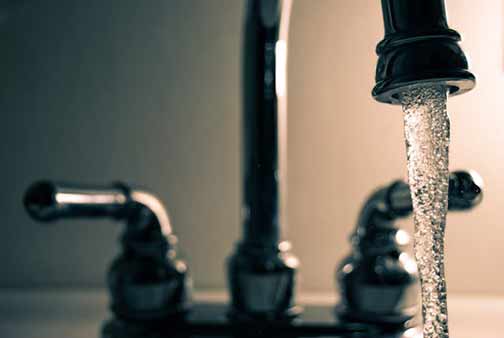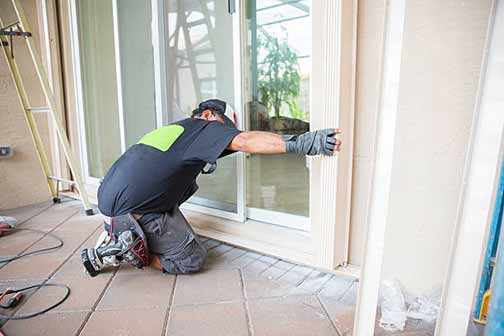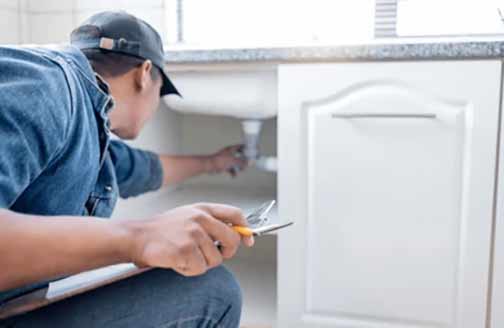
As you step into your new home in a chilly winter landscape, the last thing you want is for your plumbing to turn this warmth into a cold, wet nightmare. Winter in cold-weather regions isn’t just about snowflakes and hot cocoa; it’s when your home’s plumbing system faces its toughest test. We’ve compiled the best winter plumbing tips for your new cold-weather home to prevent your pipes from becoming the weak link in your winter wonderland.
Insulating Your Pipes
Moving into a new home in a cold climate presents unique challenges, particularly for your plumbing system. Insulating your pipes is one of the first and most critical winter plumbing tips for your new cold-weather home. The cold can cause water inside pipes to freeze, leading to expansion and potential burst pipe emergencies. To combat this, use foam pipe insulation to wrap your pipes. This simple action creates a barrier against the cold, ensuring that the water inside stays liquid. Insulating the pipes in unheated areas like basements or garages and those along exterior walls can prevent costly damage. Remember, proper insulation is your first defense against winter’s chill on your plumbing system.
Being aware of the costliest residential plumbing mistakes can save you from significant financial distress. These mistakes often involve neglecting insulation, improper use of heating devices, or ignoring early signs of leaks, which become exacerbated in cold weather. By learning from these errors, you can avoid them in your new home, ensuring your winter experience is one of comfort, not costly repairs.
Sealing Drafts
Drafts can significantly lower the temperature inside your home, which in turn can affect your plumbing. As part of your winter plumbing tips for your new cold-weather home, checking around windows, doors, and any other potential entry points for cold air is essential. Even the smallest gaps can let in enough cold to threaten your pipes. Use caulk or weather stripping to seal these drafts. This helps maintain a warmer indoor environment and conserves energy, reducing your heating costs. By keeping the cold out, you’re indirectly protecting your plumbing from freezing temperatures, making this a dual-purpose tip for both comfort and plumbing safety.
Climate-controlled Storage
Consider utilizing climate-controlled storage for those items you might not need immediate access to during your move. This type of storage is particularly beneficial in cold climates as it maintains a consistent temperature, protecting sensitive belongings from the extreme temperature fluctuations that can damage them. Whether it’s furniture, electronics, or important documents, climate-controlled storage ensures they remain in good condition, giving you peace of mind when transitioning into your new winter home.
Protecting Indoor Pipes
Indoor pipes, particularly those in unheated spaces or under sinks, are at risk during winter. One of the simplest yet effective winter plumbing tips for your new cold-weather home is to keep cabinet doors open under sinks. This allows the heat from your home to reach these pipes, reducing the risk of them freezing. Additionally, during extreme cold snaps, let your faucets drip slowly. Moving water is less likely to freeze, thus preventing the pressure build-up that can cause pipes to burst. This technique is especially useful for pipes on exterior walls or in colder parts of your home. Remember, a little drip can save you from a big disaster.
Knowing Your System
Understanding your home’s plumbing system is crucial for winter preparedness. Locate your main water shut-off valve as soon as you move in. Knowing where this valve can be a lifesaver in a pipe burst allows you to quickly turn off the water and minimize damage. This knowledge is fundamental to winter plumbing tips for your new cold-weather home. Furthermore, consider installing heat tape on pipes that are particularly exposed or in colder sections of your home. Heat tape provides an additional layer of warmth, preventing freezing, especially in areas with insufficient insulation. If you own or manage a business, also consider the importance of commercial drain cleaning during winter months to ensure your plumbing system doesn’t suffer from the cold. Familiarizing yourself with your plumbing system ensures you’re ready for any winter emergency.
Heating and Maintenance
Your water heater plays a significant role in keeping your pipes from freezing. Regular maintenance checks on your water heater are part of good winter plumbing tips for your new cold-weather home. Ensure it’s functioning efficiently to maintain the warmth of the water in your pipes. Also, keep your thermostat at a consistent temperature, even when you’re away from home. Dropping too low a temperature can risk freezing your pipes, so a steady, moderate heat setting is advisable. Insulating your attic is another critical step. Heat rises, and your attic can become a cold sink without proper insulation, pulling warmth away from your pipes. Adequate attic insulation keeps the warmth where it belongs, protecting your plumbing. This combination of heating and maintenance forms a robust strategy against the cold.
Choosing the Right Moving Partner for Your Winter Relocation
Embarking on a move during the frosty season requires planning and the right partners. Dielman Moving & Storage stands out as your ideal ally, offering specialized services that cater to the unique challenges of relocating in cold weather. They’ll ensure your possessions are transported carefully, allowing you to concentrate on adapting your new home with the necessary winter plumbing.

Don’t forget your outdoor plumbing; insulate and protect your faucets against the winter chill.
Outdoor and Additional Precautions
Outdoor plumbing needs special attention during winter. Disconnect and drain all outdoor hoses before the first freeze. Water left in hoses can freeze and expand, pushing back into your indoor plumbing and causing damage. Insulate outdoor faucets with covers or wrap them with insulation material, part of effective winter plumbing tips for your new cold-weather home. Clearing snow around your home’s foundation is also crucial, as snow can insulate the ground, keeping it cold and affecting pipes that run close to or below the surface. When using space heaters, ensure they are placed away from water sources to avoid electrical hazards or accidental water heating.
Regular checks for leaks should be part of your winter routine. Small leaks can become big problems when water freezes. Keeping gutters clear prevents ice dams, which can back water up and potentially affect your home’s plumbing. For added security, consider installing smart leak detectors that alert you to issues before they become catastrophic. In particularly cold spots, electric pipe warmers can provide the necessary warmth to prevent freezing.
Don’t ignore unusual sounds from your plumbing system. A gurgling or banging noise might indicate that ice is forming in your pipes or that there’s air trapped due to freezing. Addressing these sounds promptly can prevent plumbing disasters. Before the harsh winter hits, it might be wise to have a professional plumbing inspection. They can identify potential weak points in your system, giving you peace of mind. Finally, educate everyone in your household about these winter plumbing tips for your new cold-weather home. When everyone knows the risks and preventive measures, you create a collective effort to keep your home’s plumbing safe. Shared knowledge means shared responsibility, ensuring all are vigilant.
Who Should Handle Clogged Drains?
If you’re renting, knowing who should handle clogged drains can be quite useful, especially in winter when such problems can escalate. Awareness of this can save you from unnecessary disputes and ensure quick resolution of plumbing issues. Typically, landlords are responsible for major plumbing repairs, but tenants might need to address minor clogs or maintenance to prevent them from worsening. Always refer to your lease agreement to clarify these responsibilities, which can vary by location and agreement terms. Early communication with your landlord when you notice a problem can prevent minor clogs from turning into significant, costly repairs, especially when the cold weather might exacerbate the situation
Embracing Winter with Well-Prepared Plumbing
By adhering to these detailed and balanced winter plumbing tips for your new cold-weather home, you’re setting up a robust defense against the cold. Each tip contributes to a comprehensive plan that protects your plumbing and enhances your home’s overall winter readiness. With these precautions in place, you can confidently enjoy your new home, knowing that your plumbing system is well-protected against the winter elements. Remember, the key to a trouble-free winter is preparation, vigilance, and a proactive approach to your home’s plumbing needs.


